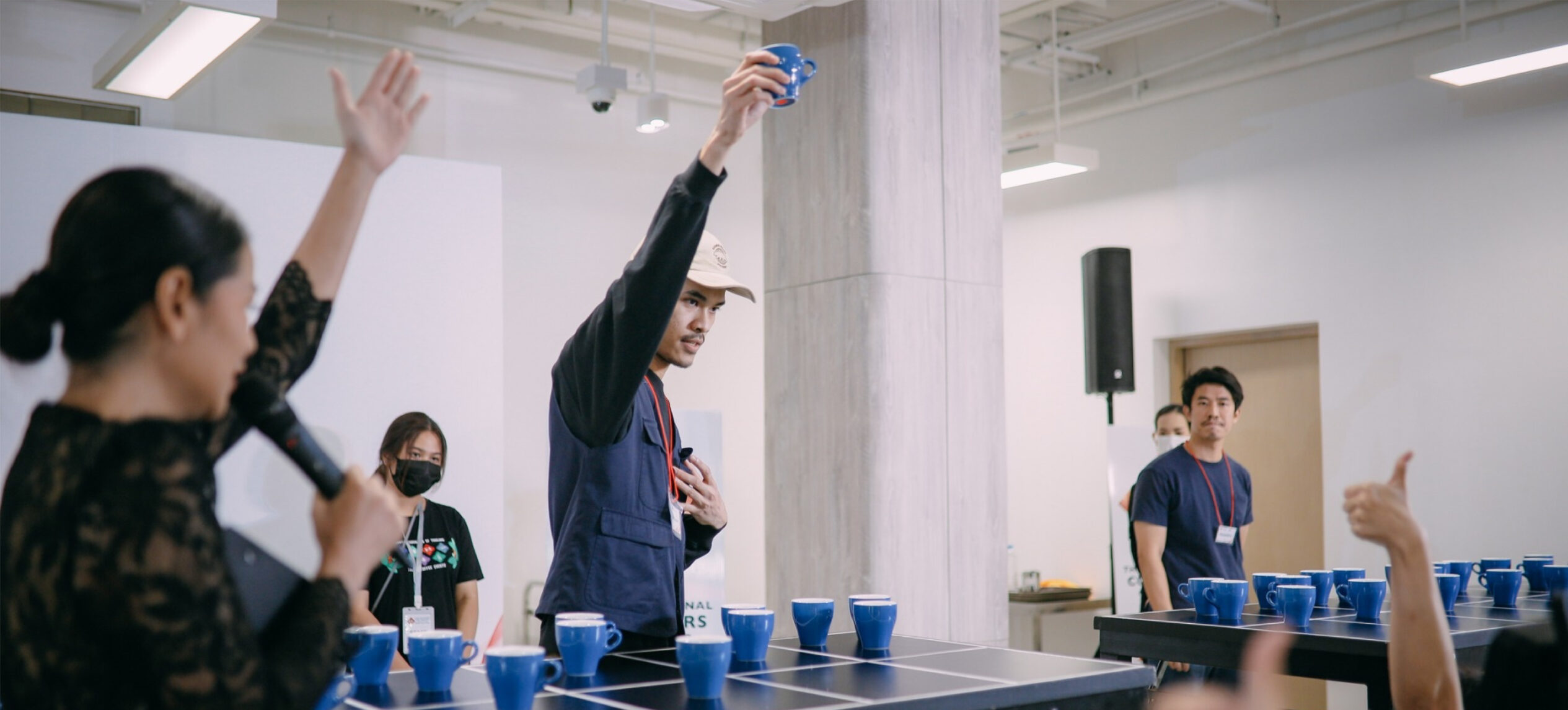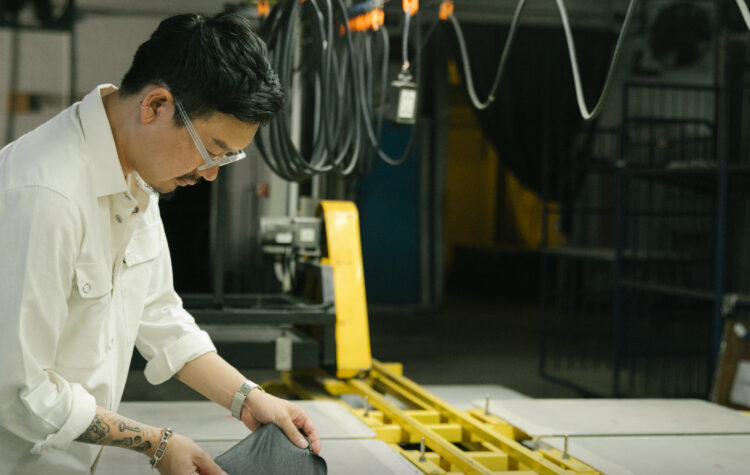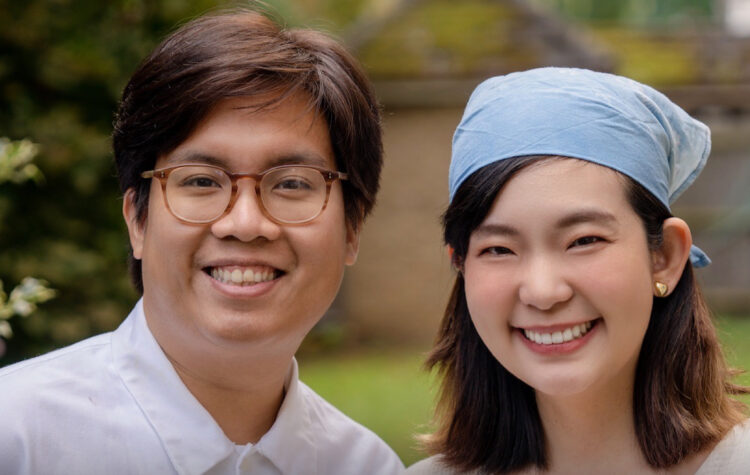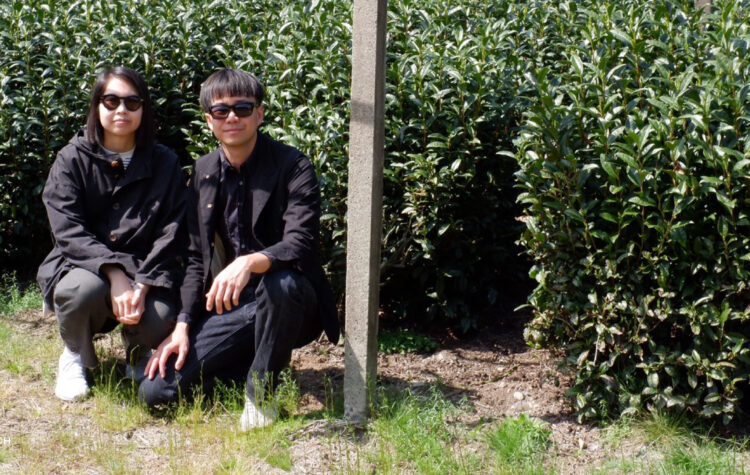The Thailand National Cup Tasters Championship 2023 is a great platform for Baristas to hone their ‘Sensory Skills’ and sharpen their ability to understand the nuances of various coffee flavors and aromas. Held from April 18-20, 2023, this competition provides the opportunity for Baristas to enhance skills critical to the profession. It’s not enough for Baristas to remember information; as the ones who serve coffee to the world, they must be able to distinguish the unique characteristics of coffee through tasting, touch, and smell.
Following the recent competition, we would like to congratulate Beer (Satayu Srirach) from Roots Bitec for winning 4th place! We also want to applaud our Baristas’ efforts, who dedicated a month to training hard in coffee tasting and competing together. These Baristas include Nut (Apiwat Kamolrojpong) from Roots Sathon, Milk (Apimook Lablae) from Roots Bitec, and Boss (Chatchalerm Lerdanekwattana) from Roots centralwOrld, who were chosen as substitutes for the competition.
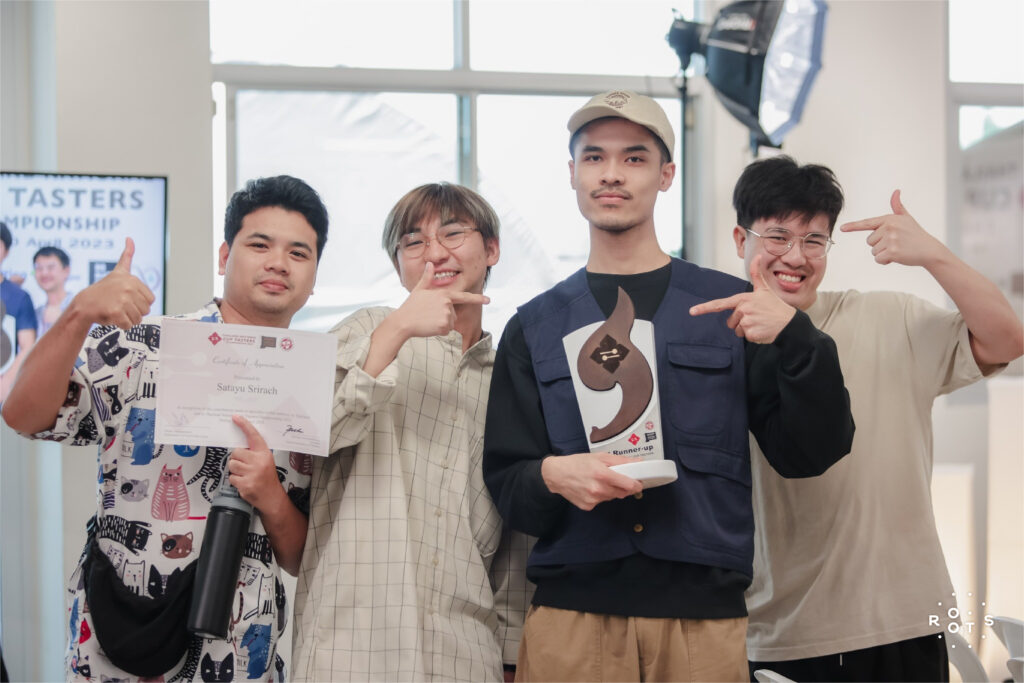
Even though the competition has ended, we believe that the impact it had on our Baristas is far from over. That’s why we have invited all four of them, including Boss (Thanuphong Karnjanajiraroj), the training co-creator, and a Roots Coffee Educator, to reunite and share their training journey and exciting experiences during the competition. What interesting moments did they encounter? Let’s find out.
CAN YOU EXPLAIN WHAT THE ‘CUP TASTER COMPETITION’ IS FOR THOSE WHO MAY NOW KNOW?
NUT: The Cup Taster competition tests the sensory skills of Baristas in distinguishing different types of coffee. For every round, the coffee is divided into 8 sets, each set containing 3 cups, with one cup being different from the others. Competitors have 8 minutes to taste all 8 sets, using skills such as tasting, smelling, and recognizing flavors, which Baristas regularly use to describe coffee to customers. The competition is a readiness challenge in a way, because the competitors don’t know what coffee they are tasting and must identify the differences, much like playing a game of spot-the-difference.
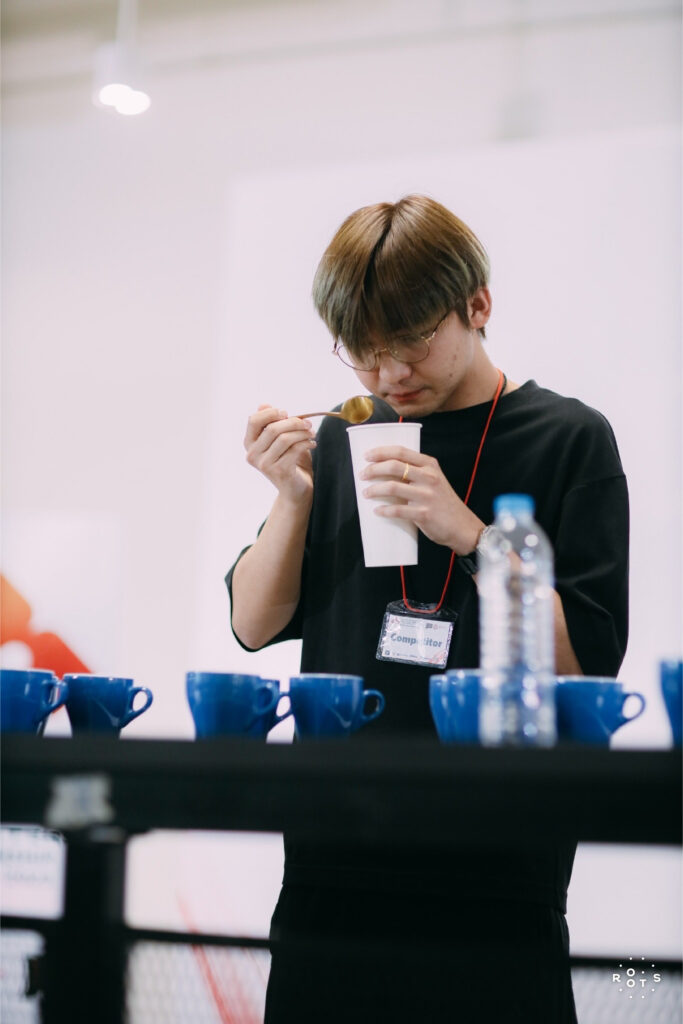
WHY WERE YOU INTERESTED IN COMPETING?
BOSS (BARISTA): I want to challenge myself as a barista. Since I’m already in this profession, I aim to unlock achievements and earn rewards through competing, even if it’s just a trophy.
NUT: Competing can help develop our skills tremendously as it requires us to practice and learn about familiar and unfamiliar things, ultimately making us more proficient. Competing offers self-improvement opportunities, allows us to compete with our minds and pushes our limits. That’s why I decided to participate in this competition.
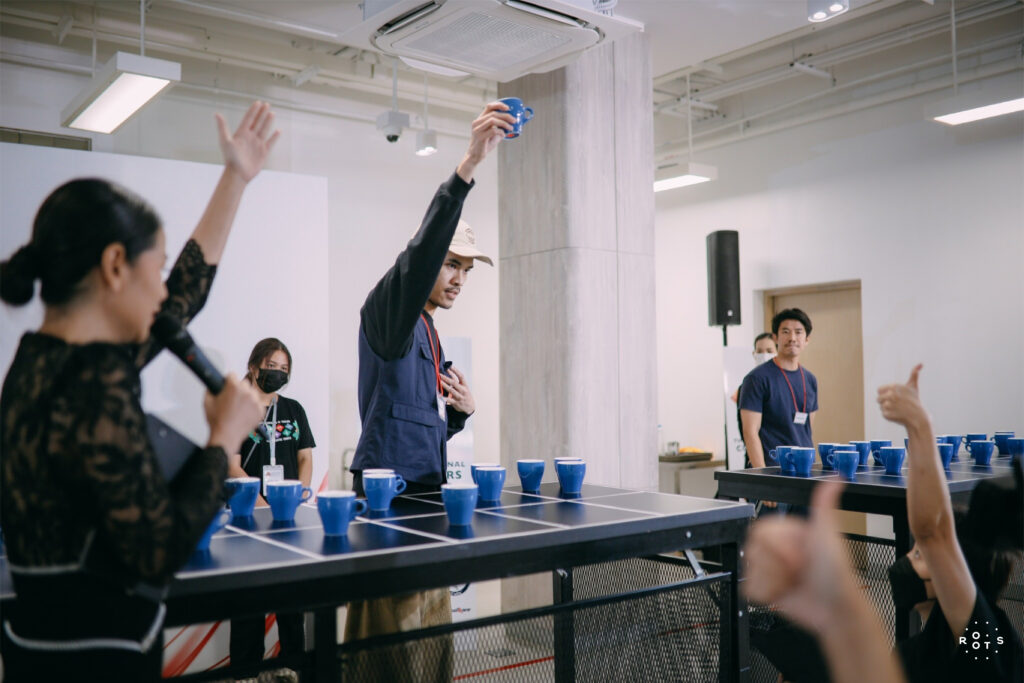
MILK: I agree with Nut. Competing can challenge us and help develop our skills in many ways. Another thing is that I enjoy competing. Every competition is an opportunity to meet new people and gain new experiences!
BEER: My answer is the same as everyone else’s, and I love competing! Whenever there’s a competition, I’m always looking to participate. It allows us to get to know ourselves better and to see how far we’ve come with our skills and abilities.
WHAT ARE YOUR THOUGHTS ON HOW BARISTA COMPETITIONS HELP PROPEL THE COFFEE INDUSTRY FORWARD?
BOSS (COFFEE EDUCATOR): Barista competitions can attract a new generation of coffee enthusiasts to the industry. Competitions, such as the Cup Taste competition, can help people unfamiliar with it learn about the competition and the industry itself. Doing so can help the industry bring in more people and circulate within the circle seamlessly.
NUT: For competitions like Brewer or Latte Art, new baristas may feel overwhelmed and hesitant to participate because it requires a lot of experience and practice. However, the Cup Taster competition relies on sensory skills, which we train for in our everyday lives. So the Cup Taster is a competition that newcomers can easily access compared to others. As interest in Barista competitions grows, more opportunities for training, knowledge exchange, and skill development will lead to better coffee for customers.
BEFORE THE COMPETITION, HOW DID YOU PLAN AND SET GOALS FOR PRACTICE?
BOSS (COFFEE EDUCATOR): We had only about a month to practice, so it was challenging to find enough coffee. We mainly used Thai coffee at Roots but also had to buy beans from other countries for the baristas to practice tasting. The main goal was to prepare ourselves, get familiar with the competition format, and ensure we felt confident.
During the first week of practice, we prioritized introducing our baristas to the competition arena, the rules and getting their tongues familiar with tasting. We focused on flow first. Timing and finding the correct answers were not emphasized initially. By the second week, we shifted our focus to the coffee itself. We divided the coffee into different levels of difficulty: Easy, Medium, and Hard, to provide the competitors with the opportunity to practice with a variety of coffee. Our emphasis was on obtaining points (from correct answers) to boost their confidence.
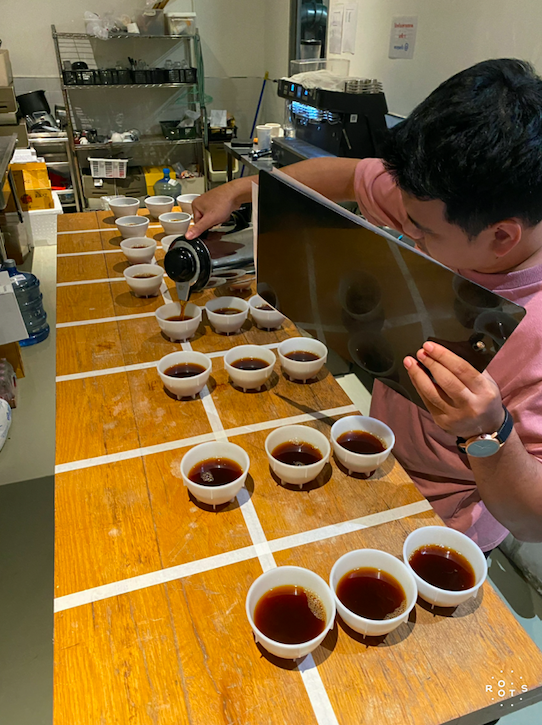
NUT: If we rank them from easiest to most difficult, the easiest level is tasting Single Origin coffee. The next level would involve blends, where all three cups could be the same type of coffee, such as Kenyan coffee, two cups could be an Ethiopian blend, and one cup could be a Rwandan blend. The most challenging level would involve playing with the blend proportions or percentages to create unique flavor combinations. Also, special processing methods, such as Anaerobic, can make tasting and identifying flavors even more challenging.
BOSS (COFFEE EDUCATOR): In the third or final week of practice, we shift our focus towards practicing timing. It’s essential because competitors who progress to the deeper rounds must have excellent timing skills. However, we maintain a relaxed environment during this period. Finally, we avoid practicing altogether in the last 1-2 days before the competition. Allowing competitors to relax and unwind will help them perform better. Overpracticing can harm their mental state, and we don’t want that to affect their performance.
HOW DID YOU WORK ON DEVELOPING YOUR WEAKNESSES AND IMPROVING IN SPECIFIC AREAS?
BOSS (BARISTA): I focus on mindfulness to avoid answering incorrectly due to a lack of focus or deceiving myself, and I also prioritize relaxation as it affects the body, taste, and smell. We also won’t be able to stand for an extended period because we practice so hard. Our practice regimen includes 6-8 sets per day, 24 cups per set, at the roaster 2-3 days a week, and each person practices at their own Roots branch for another 2-3 days. Some days we finish practice at 4-5 am, which requires a complete shift in our sleeping schedule.
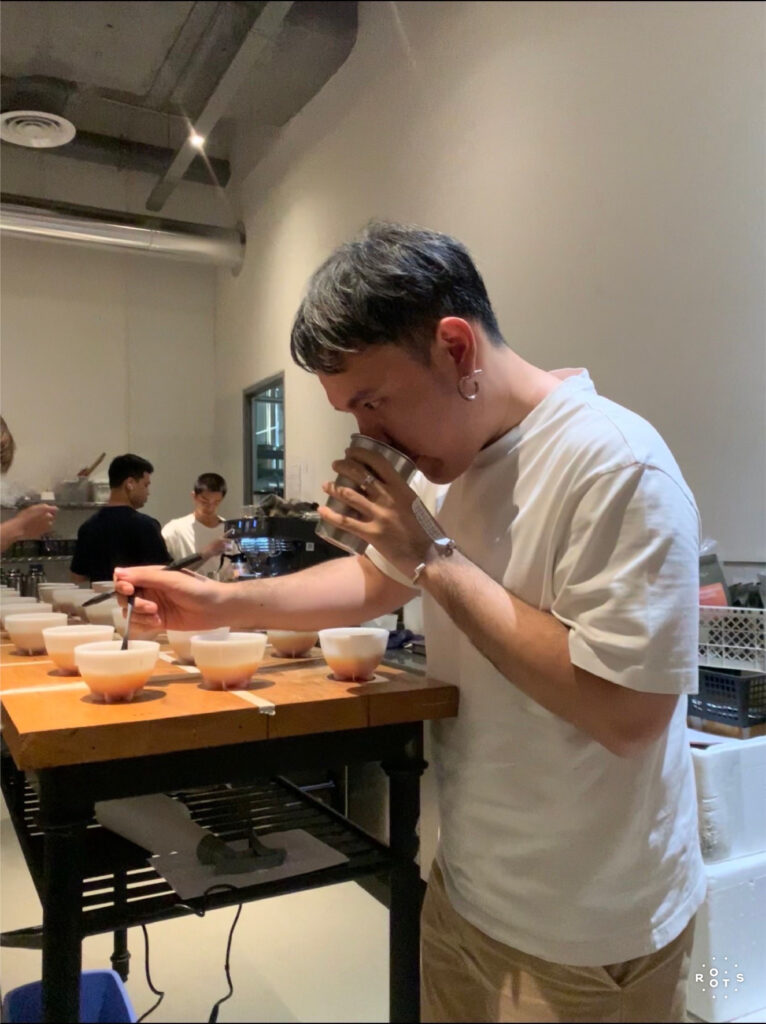
MILK: Resting is crucial to my performance, especially since I have allergies that can affect my abilities if I don’t get enough rest. As for coffee, I need to work on my skills with Natural coffee specifically. When I taste Ethiopian coffee, I sometimes experience conflicting aromas that make it taste like a single cup. I remain calm, take my time with the tasting, and stay focused on the task to overcome this.
BEER: One area where I struggle is identifying the differences between Washed coffee. It’s something that I find quite challenging. Another obstacle during training is having to drink coffee after 6 pm. Because I already have trouble sleeping, this affects my ability to rest properly. It’s also challenging during practice to have to drink coffee repeatedly. However, seeing my team, like Korn and Boss, who searched for coffee for us, and having my friends cheer me on and help me prepare motivates me to keep going and not give up.
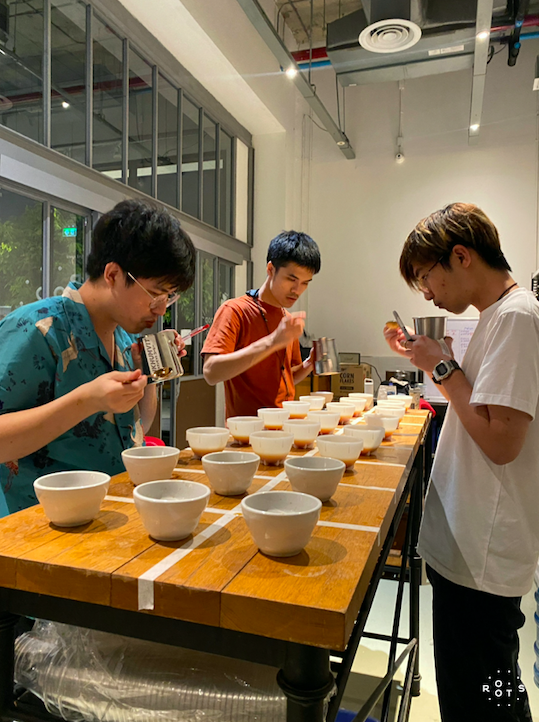
NUT: Compared to everyone else during practice, I feel like I’m the least precise. This may be because I overthink and over-analyze while tasting. As time passes, my tongue and brain work harder and harder, making it difficult to conclude. Consequently, when it’s time to make a decision, it could be more accurate. I believe this is also a matter of strategy, where the pattern of tasting is crucial for improving accuracy. In the past, I used to taste without a plan, trying one cup after another, and forgetting the taste of the first cup by the time I got to the third. The solution is to learn the pattern of tasting to compare more efficiently.
WHEN YOU STEP ONTO THE COMPETITION STAGE, WHAT LEAVES AN IMPRESSION ON YOU?
NUT: As the first competitor for the Roots team, I’m most impressed with the accumulation of skills we’ve developed during practice. We’re able to execute everything we’ve rehearsed, from patterns to time management, and when we give it our all, it feel like we’ve managed ourselves well. We battle against ourselves, fight against the rush of excitement, and push ourselves on the stage.
MILK: I can relate to Nut regarding the challenge of competing against myself on stage. Previously, I used to think that I had to be excited and couldn’t control my nerves, but when the actual competition came, I felt like I could execute the plan I had set for myself. Another thing that impressed me was when Beer won an award and brought it home. Throughout my friendship with Beer, I have seen him compete in many events, and finally, he received an award!
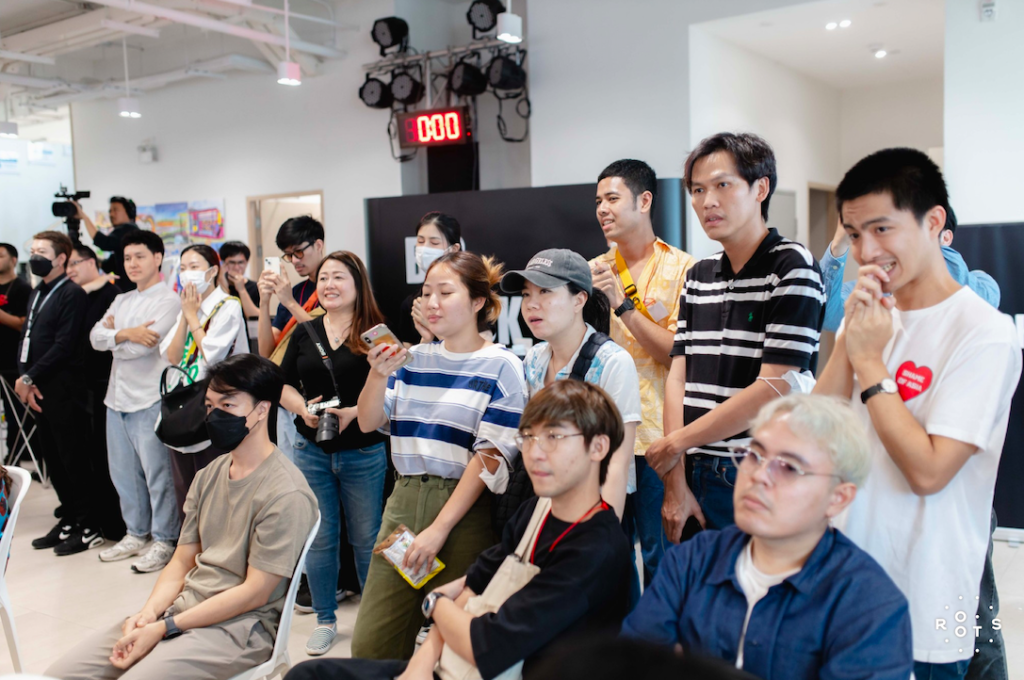
BEER: I was impressed with our cheer squad! Both those who came to watch us and cheer us from home, and friends from other Roots branches who watched the live stream. As for the tasting challenge in the final round, I must say it was impressively difficult. While talking to other competitors in the final round, we wondered why it was so hard, and we all concluded that the organizers intentionally set a tough test for us in this round!
DID THIS COMPETITION EXPERIENCE INSPIRE YOU TO DEVELOP YOURSELF IN ANY WAY?
BOSS: I want to keep competing on stage continuously and share the knowledge I’ve gained with younger baristas and friends at Roots. It’s always enjoyable to talk about coffee with one another!
NUT: The next step for me is to compete in this competition again. I want to continue developing my skills, and another clear goal for me is to support younger baristas and friends who also want to compete. Whether it’s on a small or big stage, no matter what the topic, if we don’t have the necessary skills, we’ll help find the right people to help us develop them. Being a team player is an essential aspect of competition. While physical health is important for competitors, motivation from the people around us is also necessary. I want to be a source of motivation for those around me to achieve their goals.
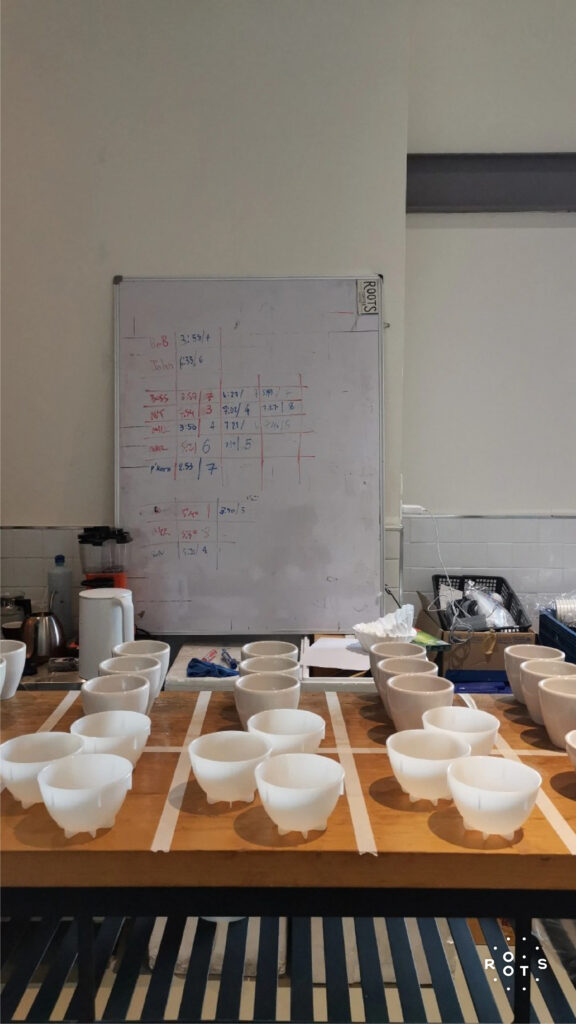
BEER: I feel the same way as Nut. His response was great. I want to assist younger individuals or others interested in competing, similar to what Korn and Boss have done.
MILK: I also want to keep competing continuously. Like many others, I want to develop myself to the best of my abilities and at least be able to share my competition experience with others!





